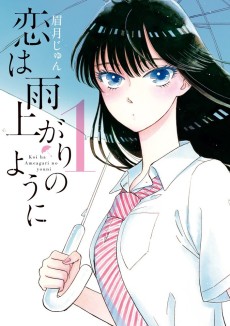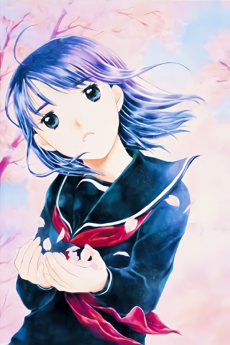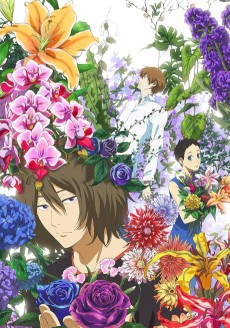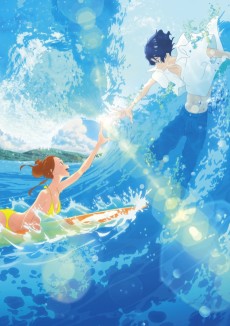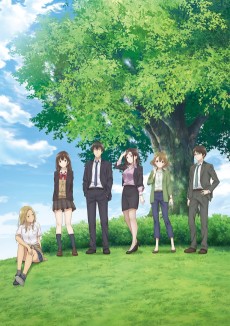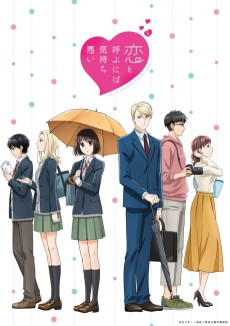KOI WA AMEAGARI NO YOU NI
STATUS
COMPLETE
EPISODES
12
RELEASE
March 30, 2018
LENGTH
23 min
DESCRIPTION
Akira Tachibana was once the ace of a track club, but an injury forced her to quell her passion for sports. Masami Kondou, a divorced father, had ambitions of being a writer and now manages a restaurant, where Akira works. It is the intersection of Akira and Masami’s seemingly disconnected lives that makes each of them reconsider and redefine everything about themselves.
(Source: Sentai Filmworks)
CAST
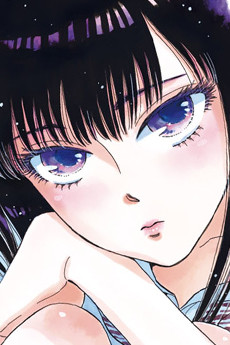
Akira Tachibana
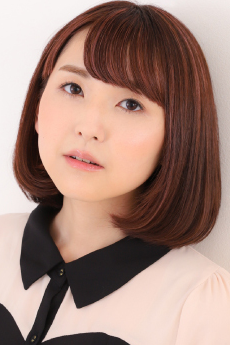
Sayumi Watabe
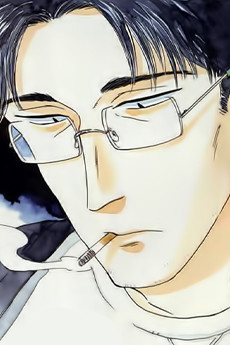
Masami Kondou
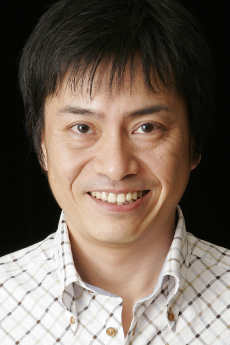
Hiroaki Hirata
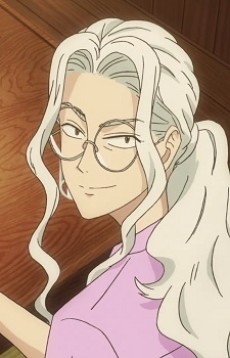
Chihiro Kujou

Mitsuru Miyamoto
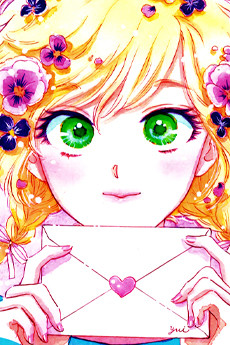
Yui Nishida

Haruka Fukuhara
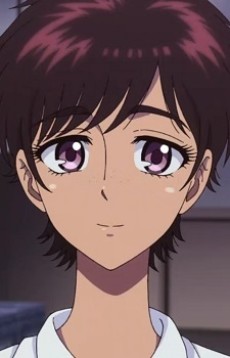
Haruka Kyan

Emi Miyajima
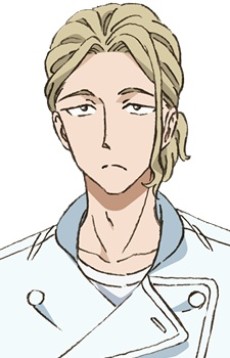
Ryousuke Kase
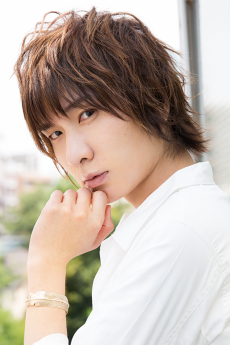
Tomoaki Maeno
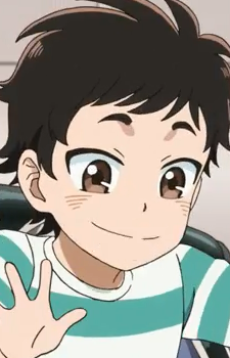
Yuuto Okajima
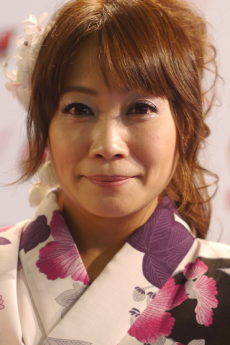
Junko Takeuchi

Takashi Yoshizawa
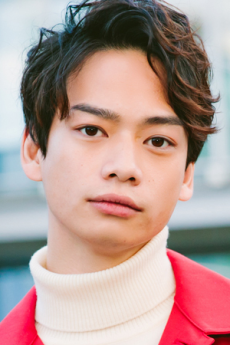
Junya Ikeda
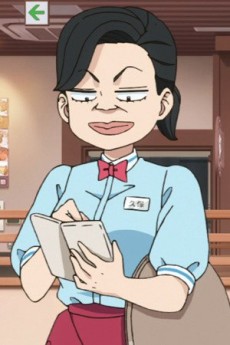
Kayoko Kubo

Mika Kanai
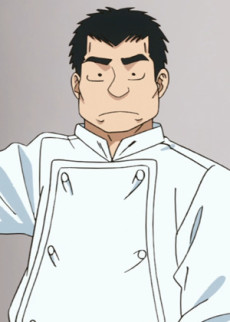
Ootsuka

Masahito Yabe
EPISODES
Dubbed
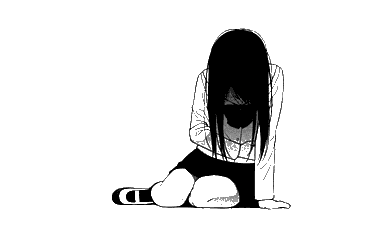
Not available on crunchyroll
RELATED TO KOI WA AMEAGARI NO YOU NI
REVIEWS

aikaflip
80/100Two people drawn together by intersecting circumstances in an unexpectedly wholesome coming-of-age story.Continue on AniListAdapted from the seinen manga by Jun Mayuzuki, After the Rain (Koi wa Ameagari no You ni) is a tender-hearted romance about a bold high school sophomore, Akira Tachibana, who develops strong feelings for the charming middle-aged manager, Masami Kondou, at the restaurant where she works.
A story that should've induced endless cringe was somehow realized into an uplifting slice of life. It certainly helps that Kondou, colorfully performed by the resonant Hiroaki Hirata, isn't the one doing the pursuing. When Tachibana's feelings for him become evident, he reacts responsibly. He's fully aware of the ramifications of dating a teenager at his age, and is understandably resistant to the idea.

Tachibana, voiced with a quiet sharpness by Sayumi Watabe, is surprisingly insistent when it comes to what she wants, though guarded enough to not share everything about herself. Her apparent coldness frustrates Haruka Kyan, an old track partner who longs to rekindle the close camaraderie that they once had. Tachibana, who was—and still is—an exceptional runner, opts out of competition due to an injury, and seems quite content with spending the bulk of her social time pursuing Kondou. She distances herself from Kyan, perhaps because they've grown apart, or because Kyan brings back memories that she wants to forget.
Initially, I didn't quite understand why Tachibana would be attracted to someone as old as Kondou. It wasn't until around the fifth episode, when we get a glimpse of Kondou's personal life, that it started to make sense to me. Outside of work, Kondou lives a modest life as a bibliophile and single father. He's a caring parent to his young son, Yuuto, and maintains a comfortable home when the two of them are together. Tachibana likely sensed this kindness from her time with him, and thus sought him as a refuge after losing motivation for most everything else.
Director Ayumu Watanabe, who also helmed the anime classic Space Brothers, brings an understated sophistication to the performances and atmosphere. After the Rain doesn't fear placidity. Scenes often break from the commotion to dwell with the surroundings, which are typically dressed with a relaxing ambience and rain covered petals.

The biggest negative for me was Ryousuke Kase, a character who appears in the fourth episode. In total contrast with Kondou, Kase has a lustful and self-serving interest in teenage girls. With near supernatural ability, he finds a way to interject himself into Tachibana's life, and even gain leverage over her. Thankfully, the adapters realized that this character was about to break everything with contrived drama, and they quickly pushed him to the side; we don't see much of him thereafter.
There was a moderate amount of what some academics have snidely deemed as "male gaze", where the imagery is seemingly framed from a straight-male perspective. In the case of this anime, the camera occasionally gives the viewer an alluring close-up of Tachibana's modelesque demeanor. Seeing as this is a seinen targeted to teen and adult males—or anyone who appreciates a nice story—some light fanservice should be expected. Personally, I felt that these visuals aptly supplemented the sexual undertones of the material.

Animated with dazzling finesse by Wit Studio, After the Rain is a portrait of two people, initially separated by a generation, who are drawn together by intersecting circumstances. The overall emphasis, for better or worse, is more on the everyday character situations than on the romance. Ultimately, the story is an exploration of the efforts that we take to reconcile the loss of the things that we cherish—whether it's an old friend, or the dreams that we strive for. If you're looking for something sweet and innocuous with a dash of poetry, you may find satisfaction with After the Rain.

brainiac1530
92/100A show about life and love, but perhaps not the kind of love you were expecting.Continue on AniList[Indirectly spoils the ending, and possibly other elements of the show. This is the sort of thing that's hard to avoid in reviews, and which I don't think should necessarily be avoided. Consider yourself forewarned.]
Today, I want to write about love. It's no coincidence that this show is about love and writing, and the love of writing, among other things, because I don't often write in the first place. From time to time, I find that there are some shows which evoke certain feelings, or thoughts, that I have to write about them. This is one of those shows.
There are many kinds of love. The advertising for this show, and its OP/ED, focus largely on the romantic kind. It's almost a shame, because the show focuses mostly on the love of hobbies or work. Akira and Masami are the kind of people who have lost sight of their passions for one reason or another. Akira gave up on running due to an injury. Masami gave up on writing because of a lack of success and the hardship it brought on his family.
It's frequently difficult to pursue these passions. It's also not easy giving up on a thing you feel so strongly about, or dealing with the regret of having done so. That said, wouldn't you be happier doing the former, given that it's a thing you enjoy anyway? It's a hard question for a lot of people, and like most real-world problems, there isn't one right answer for everyone. There's a catch to this dilemma, though. A person who doesn't really want to give up and walk away from his dream simply shouldn't. He might still do it, though, for one reason or another. In this case, wouldn't someone who encouraged him to follow his dreams be making his life demonstrably better? In that case, isn't it better to be with that person?
This is the essence of human relationships, in the end. "Romantic love" is something that mostly exists only in fiction, and this show isn't interested in perpetuating the fantasy. However, love itself is real enough, and this show sets out to explore it. In this case, it starts out in what's basically the most straightforward way. Akira is physically attracted to Masami. I consider this much to be clear, though many things in the show are presented nonverbally, and thus up to interpretation. It's less clear how Masami feels about Akira, especially at first. I got a similar impression from him that I got from Kyon. Namely, that he's prone to self-deception. That's why it's so refreshing that Akira is so honest about how she feels about most things. This is why it tears at my heart to see her lie to herself, and to others, about the most important one.
You see, this was a very emotional show for me. I cried at the finale, which is already rare enough, but it was a different kind of cry. These were tears of joy; the joy of experiencing something truly beautiful. I don't consider this to be an accident. Where many shows would generally be content to tell you what their characters are feeling, or use some kind of established visual shorthand, this show tries to make those emotions visually apparent, and to impart certain feelings onto the viewer. Nonverbal communication is inherently risky, and I've always admired shows that rely on it and succeed. This show likes its metaphors, visual and otherwise. I've long known that Wit Studio has some talented animators, and has a passion for making visually beautiful shows. It's wonderful to see them take that energy and talent, and use it for a clear purpose. I'd also like to credit the background artists, because their work is stellar, but I know almost nothing about this element of anime production. It's also no coincidence that the music is very good; I've often considered this to be the most emotional part of the experience of watching anime. Even what I thought might be a flaw, that the music is somewhat repetitive, may in fact be a motif, which again serves a purpose.
I love this show. It really speaks to me. It fits my ideals for what an anime should be, and its theme and some of its trappings appeal to me personally. Its ending exceeded whatever hopes I might have had for it. It's not very interesting to talk about its personal appeal to me, since the reader's life experience and situation will certainly be different than mine, but it's there. That said, I feel confident that this show's more objective merits are strong enough that I could recommend it to anyone. I hope you love it as much as I do, because in the end, we're better off being happy. (Sorry, Chihiro! No poison today.)

AndoCommando
80/100Love and passion. Similar but not synonymous, yet After the Rain touches both gracefully.Continue on AniListLove is like After the Rain. In the midst of stormy conditions you can either comfortably wait inside until the weather dies down or choose to face it head-on, pressing forward through the torrent and seeing where it takes you. Similarly, passion is like after the rain; once drowned out it can leave you confounded and lost with grey clouds hanging overhead. What once before had consumed one’s lifestyle is suddenly pulled away, no longer part of who they are and now must come to terms with this. In After the Rain we are shown two characters, each on the surface seem completely different to one another but upon closer inspection share a comparable suffering – they are both burdened with the feelings of a lost passion.

High-school sophomore Akira Tachibana is obliged to give up track-and-field after suffering a torn Achilles tendon. Up until this point, running had been part of her life since her earliest memories, almost becoming an instinctual part of her. Now having been ripped away from her passion she finds herself detached from her past world; stumbling along mere sidewalks by her lonesome self, enveloped in a constant downpour that doesn’t appear to let up anytime soon. Akira as shown on numerous occasions is very emotionally-driven, her feelings never bottled up and always fuelling her actions. Now facing the reality of her situation alone, she is at the lowest she has ever been. But one day, whilst sitting inside a family restaurant staring out at the rain, the manager approaches her with a cup of coffee on the house, performs a cute magic trick before saying to her:
“It’s boring when you’re just waiting for the rain to stop. I’m sure it’ll stop raining soon.”

This alongside his act of kindness captures her heart and results in Akira developing a childlike crush on the man, subconsciously filling the void her injury left with an almost unhealthy love for Masami Kondo, the manager over twice her own age. Going so far as working under him at that very restaurant, becoming more and more committed in confessing her feelings to the man. Considering the subject matter, this series walks on very thin ice with focusing on an implied romance between a young girl and a middle-aged man, even testing the waters at times with her confession leading to a date between the two. But where many other series would have faltered, After the Rain handles this relationship with a level of grace and tactfulness rarely found in anime. It evolves from a simple age-gap romance generally considered taboo to deliver on a tale that focuses on the couple as individuals, each having lost something integral to themselves in the past and are both still learning to cope with.
Masami Kondo may seem a typical kind man on first impression but his life up to this point has been far from what he once hoped for. He is constantly burdened by what could have been – an avid writer in his youth whose material unfortunately never gained popularity and coupled with a failed marriage, leaves him with an attitude of complacency. His adoration for writing heavily implied as the driving force behind his divorce and losing custody of their child, a tragic turn of events that left his family broken and eventually caused him to abandon his writing. Now whenever his past career work is challenged, he simply blames it on age and sees any serious attempt to change such is inconsequential. He is content in reminiscing about the love he once had bitter-sweetly, afraid of potentially tainting the memories he still cherishes.

Both our main characters have felt the pain their passions led them to, Akira physically with a severe injury and Kondo emotionally with his family fractured in the process. Both are pushed away from what they lost and have grown fearful of the hole left in their place, afraid of ever returning to them. Kondo is fine reading the words of others and scribbling down notes when working, but at his desk with pen in hand he can only stare at the sheet in front of him, his thoughts never put to paper. Alongside being reminded of his past failings in the form of his highly-successful college friend, he is unable to take that step towards rekindling his passion. Akira is still willing to talk with her friends on the track team, but now doing so is coupled with a feeling of disconnect and angst, stranded alone and forced to watch their practice from the sidelines. Every time she tries to run she’s left injured in the process by her lost love, akin to an abusive relationship she just cannot seem to overcome.
On that day when Kondo offered her coffee they were only strangers, unaware of what has happened in the other person’s life. What Kondo did know however was the look in her eyes; the longing gaze of someone who’s lost and mourning something important to them. He knows it because it’s the look he shows whenever alone. Staring into the rain at night with cigarette in hand, reflecting on what he once had, his position in life and how he ended up there. Despite the difference in age Kondo is able to empathize with Akira, birthing a stronger connection between the pair from the parallels of their situations. A crush from the teenage girl does initially result from this and while there are moments throughout the show that hint towards romantic feelings being returned by Kondo, the overall approach is cautious and thoughtful. Her fondness for Kondo is illustrated as simply infatuation born out of immaturity and never becomes a path to shape her future. Not only are her feelings never taken advantage of by the older man, but what began as a school-girl affection morphs into a deep mutual respect and understanding between two damaged people.

Love is like After the Rain, but not in a romantic sense. Instead it aspires to depict the rekindling of a lost love that has plagued both Akira and Kondo’s lives. Here lies a story of two people with their own problems that are able to help each other work through them. Allusions are a core aspect of the series used to convey the issues each main character faces, both visually and metaphorically. When referring to the short story “Rashomon”, Kondo suggests he is too far gone to try writing once again, claiming he does not possess the energy and determination required for it. In response Akira tells him that his regrets aren’t something to wallow in, instead use them as motivation to return to that love that constantly spurred him on. For Akira, her fears of running again are finally addressed when having a conversation around a swallow that had trouble leaving the nest. Asked if the bird could have been happy staying behind in the nest, Kondo asserts that while there might be happiness found, it would forever look up and long for the skies. These moments end up being the push both needed to take the next step forward in their lives. Both have realised they each have a lot to work on as individuals and neither are ready to give up on the dreams they hold dearly in their hearts yet. And so, they each go their separate ways.
As the end credits roll, a melancholic theme plays set to a race track flooded with rain, only to transform into a bright one as the sun breaks through the clouds whilst the tune meets its climax. It’s a gorgeous representation for how the series closes with both Akira and Kondo coming out of the storm stronger than before, ready to face their passions once more. No matter how long darkness and feelings of uncertainty loom over, there will surely be a light that follows. Amidst the rain seeds of romance were planted, but now that the rain is over do they have the chance to flourish. Whether their relationship still holds romantic love or not remains to be seen. But from a year praised as one of the best for anime, I know there’s at least one show from that year I still hold great fondness for.
SIMILAR ANIMES YOU MAY LIKE
 MOVIE DramaKotonoha no Niwa
MOVIE DramaKotonoha no Niwa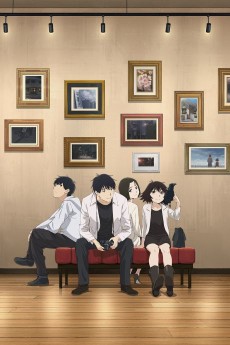 ANIME DramaYesterday wo Utatte
ANIME DramaYesterday wo Utatte ANIME DramaViolet Evergarden
ANIME DramaViolet Evergarden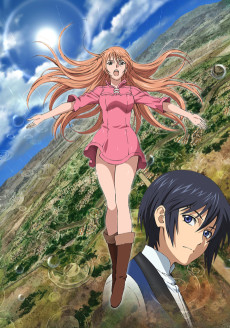 ANIME AdventureSoredemo Sekai wa Utsukushii
ANIME AdventureSoredemo Sekai wa Utsukushii ANIME ComedyKimi ni Todoke
ANIME ComedyKimi ni Todoke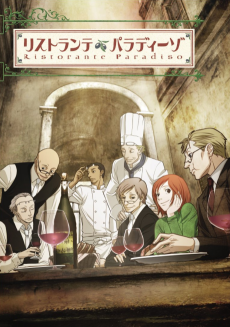 ANIME DramaRistorante Paradiso
ANIME DramaRistorante Paradiso MOVIE DramaKoe no Katachi
MOVIE DramaKoe no Katachi
SCORE
- (3.65/5)
TRAILER
MORE INFO
Ended inMarch 30, 2018
Main Studio WIT STUDIO
Trending Level 1
Favorited by 1,360 Users
Hashtag #恋雨

